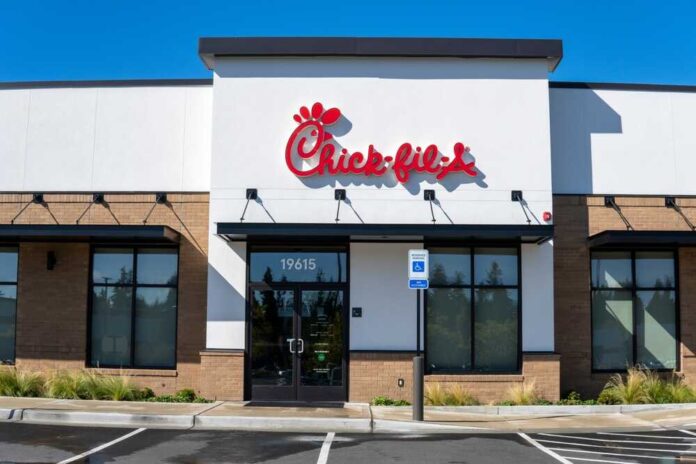
Some Democrats in the New York State legislature want to remove the popular fast food chain Chick-fil-A from its highway rest stops. The move comes as the group argues that the chicken restaurant holds anti-LGBT views and as the chain expands rapidly across the country.
The measure would ostensibly ban Chick-fil-A from New York State Thruway rest areas because it does not open on Sundays.
New York State Assemblyman Tony Simone (D) said that in order to serve state residents and travelers, “things should be open seven days a week, including Chick-fil-A, and if they can’t they shouldn’t be in our rest stops. There should be options for people to eat and drink and not just one spot.”
“It simply makes no sense for any provider of food services in these busy travel plazas to be closed on Sundays,” Simone says.
Despite the discussion about serving food on Sunday, Simone continued, speaking about the company’s record on LGBT issues. The assemblyman said, “Chick-fil-A has had a terrible record on LGBT rights. I’m not going to not say that clearly.”
The downstate Democrat did offer a loophole for Chick-fil-A to continue serving customers in the rest areas: to open their establishment on Sundays.
New York Democrats laser-focused on the important issues.https://t.co/DJBHd4a7VP
— JWF (@JammieWF) December 16, 2023
However, such a provision would conflict with the company’s deeply held religious beliefs.
Chick-fil-A cited the original decision by its founder Truett Cathy, made in 1946 at its first location. Truett had worked on a seven-day-a-week schedule at other restaurants and “saw the importance of closing on Sundays so that he and his employees could set aside one day to rest and worship if they choose,” according to the restaurant.
New York State understood that the restaurant was only open six days per week before it opened at its rest areas.
Democrats have criticized the company’s stance on LGBT issues. Its current chairman, Dan Cathy, said that gay marriage advocates “shake our fist” at God and declare that “We know better than you as to what constitutes a marriage.”














